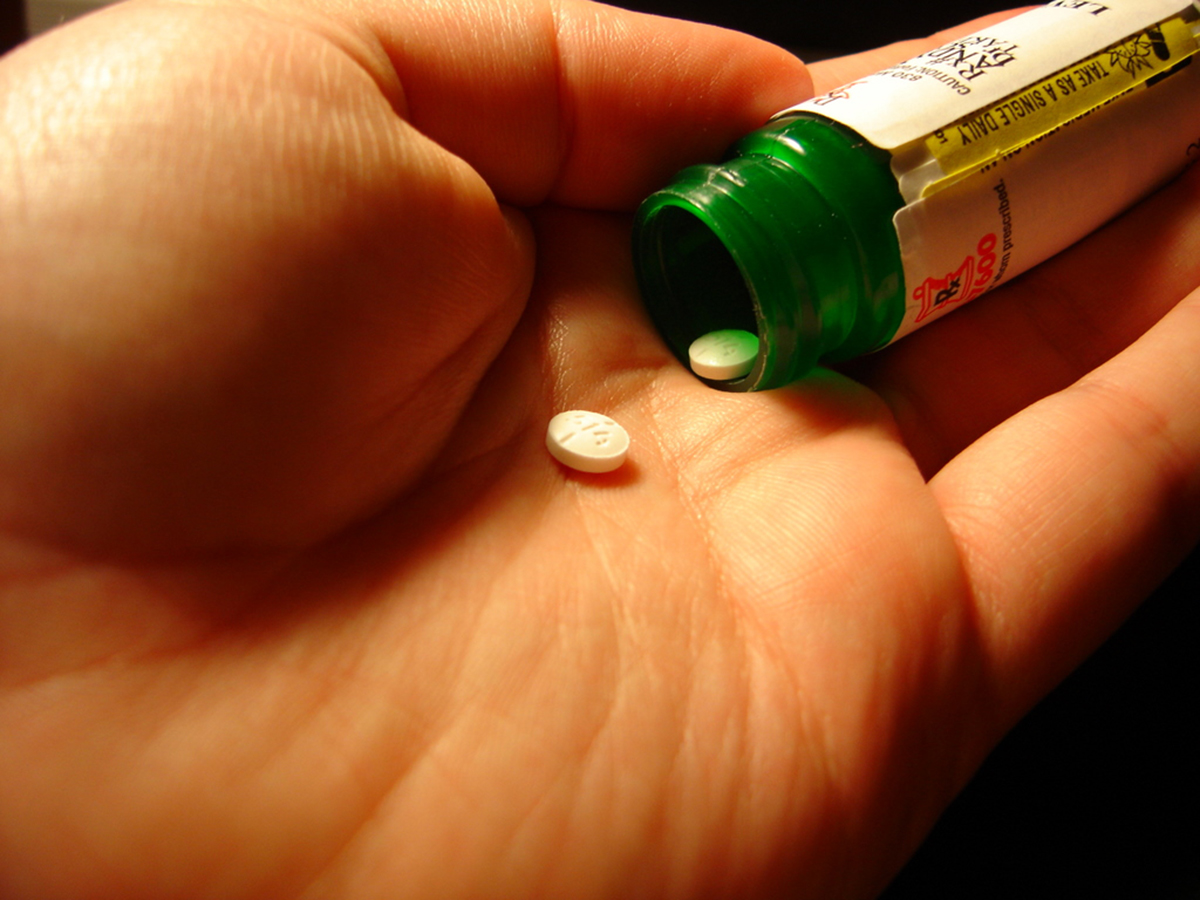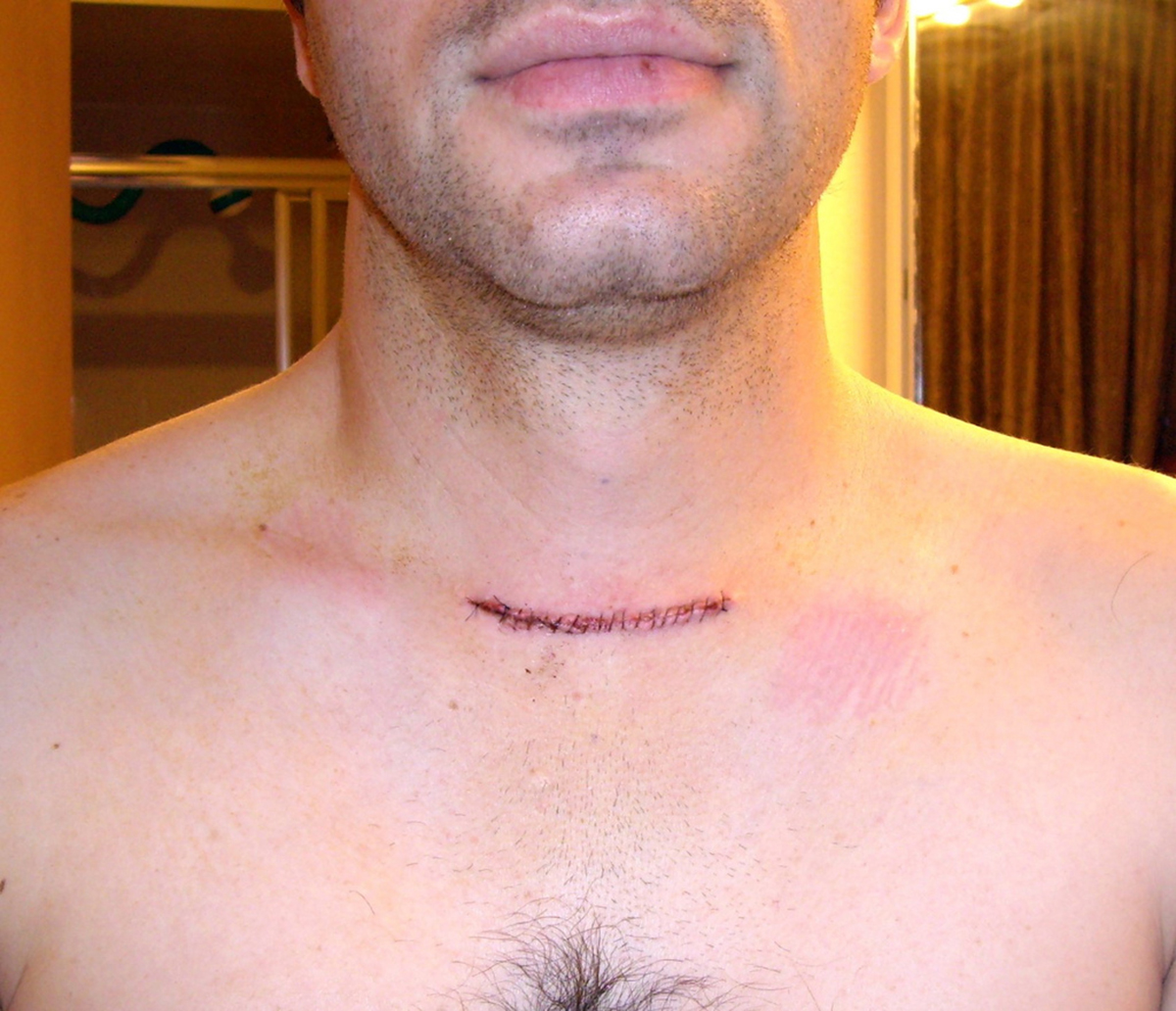Do you take medication for thyroid disease? If you do, you are not alone. Just in the United States, nearly 25 million prescriptions for thyroid hormone replacement medication are filled every year.

Millions of people take thyroid hormone, but most people who take it (and occasionally their doctors) don't really know why. The American College of Endocrinology, a physician group, has taken on the task of educating people about thyroid disease and treatment.
Q. What can go wrong with thyroid medication?
Thyroid medication is not a perfect replacement for natural thyroid hormone. Thyroid replacement hormone is a form of thyroid hormone that the body usually keeps in storage. It isn't the "activated" form of the hormone. Sometimes your body will convert your thyroid medication into the useful form of thyroid hormone faster and sometimes it will convert it more slowly.
For patients who have hypothyroidism but still have a poorly functioning thyroid, there is an additional complication. The pituitary gland in the brain releases a compound called thyroid stimulating hormone, or TSH. In turn, TSH triggers the production of thyroid hormone by the thyroid, which has to be further converted to be actually used. The pituitary may make more or less of the TSH that drives the production of thyroid hormone. Your doctor is more likely to measure TSH, the thyroid stimulating hormone, than T4 and T3, the actual thyroid hormone.
Where patients get into trouble is switching brands of thyroid hormone just because their bodies aren't making the right amount of TSH. It's important to change the dosage of medication, not the brand of medication. Tiny differences between different generics and different brand-name medications make it difficult for the body to make the right amount of TSH. If you switch brands, your body may also change its production of TSH, so your active hormone levels go high or low. The only way to avoid this is to stick with the brand of thyroid hormone you are current taking, letting your doctor adjust the dosage. It is important to make sure that your pharmacist does not switch brands of thyroid replacement hormone without your doctor's consent.
Q. Should I be using "natural" thyroid hormone replacement?
One of the issues with thyroid hormone replacement is that most medications are in the form of T4, also known as thyroxine or 3,5,3',5'-tetraiodothyronine. This is the form of thyroid hormone that the thyroid makes. The form of the hormone the body uses is T3, also known as triiodothyronine or (2S)-2-amino-3- [4-(4-hydroxy-3-iodo-phenoxy)- 3,5-diiodo-phenyl]propanoic acid. Three different kinds of enzymes convert the storage form of thyroid hormone, T4, into the active form of thyroid hormone, T3. When there is a malfunction of the thyroid gland, or it has been removed, most endocrinologists believe, it is better to replace the form of they hormone made by the thyroid itself and to rely on existing enzyme systems to convert it.
See Also: Thyroid Problems: Extremes Are Never Good
Not everyone, however, has the enzymes to convert T4 to T3. "Natural" thyroid hormone, such as Armour (not "armor") Thyroid, made from pig glands, contain both T4 and T3. So why shouldn't everybody use it? It's easier to get too much "natural" thyroid hormone replacement than synthetic. Your doctor needs to monitor your TSH and thyroid hormone levels along with your general state of health more closely if you use Armour Thyroid.
More Questions and Answers About Thyroid Hormone Replacement
There are also a number of questions that need to be covered when you are first starting thyroid hormone replacement.

Q. Where is my thyroid, and what does it do?
The thyroid is a gland in your neck that makes thyroid hormone. It is stimulated by a hormone called TSH, made by the pituitary gland in your brain. It makes a form of thyroid hormone called T4, which helps your body use energy.
Q. What is the difference between hypothyroidism and hyperthyroidism?
Hypo- refers to low levels. Hyper- refers to high levels. If your thyroid is not making enough thyroid hormone, you may have hypothyroidism. If your thyroid is making too much thyroid hormone, you may have hyperthyroidism. Hypothyroidism symptoms are caused by the inability to burn sugar for energy. You may gain weight, have dry skin, and feel sluggish. Hyperthyroidism symptoms are caused by burning too much sugar. You may lose weight, experience exophthalmia (bulging eyeballs, which may become permanent), and a variety of "hyperactive" symptoms.
Q. My doctor tells me that my TSH levels are normal but I still feel lousy. What should I do?
TSH (thyroid stimulating hormone) does not measure how much hormone your thyroid is actually making. It measures how much your pituitary gland is stimulating your hormone. If your TSH levels are "normal" and you feel sluggish, the problem may be that your thyroid does not have the raw materials it needs to make thyroid hormone. It can help to supplement with iodine, copper, and zinc--but not in megadoses. Don't try to "attack" your thyroid problem with nutritional supplements. Just provide it with the recommended daily intake of these nutrients. If you show symptoms of hyperthyroidism, and your doctor tells you that your TSH levels are normal, ask for additional testing.
Q. Does diet make a difference in thyroid disease.
Extreme diets can make a difference in thyroid disease. There are a few fishing villages in Japan where the local residents eat massive amounts of seaweed, which is a very rich source of iodine. These villages have high rates of hyperthyroidism, overactive thyroid. There are a few places in Eastern Europe where entire classes of schoolchildren were diagnosed with failure to thrive, when doctors noticed that they ate massive amounts of cabbage soup. Cabbage family plants, especially when eaten raw, contain goitrogens, compounds which interfere with the absorption of iodine, which the thyroid needs to make its hormone. Simply eliminating the daily bowl of cabbage soup caused IQs to jump.
Q. Is it always necessary to have the thyroid removed or destroyed for hyperthyroidism?
Many forms of hyperthyroidism (overactive thyroid) are caused by autoimmune disease, an attack on the thyroid by the immune system of the body itself. This kind of hyperthyroidism has a way of resolving itself, usually in about a year. Don't get in a hurry, and don't let your doctor push you into having treatments that destroy your thyroid.
Q. What is the most sensible treatment for thyroid cancer?
Not every mass in or on the thyroid is cancerous. Ask your doctor to do a biopsy of any unusual mass before removing your entire thyroid. Just don't delay treatment.
Q. What else besides TSH levels should my doctor be checking to see how well I am doing with my thyroid treatment?
It may also help to measure T3, the amount of active thyroid hormone available to your body.
See Also: Could You Have A Thyroid Disorder?
Q. If I have thyroid disease, will I someday get thyroid cancer?
In some countries, notably in South Korea, there seems to be an epidemic of overdiagnosis of thyroid cancer. In the United States, only about 1 in 250 persons ever develops any kind of thyroid cancer, and only about 1 in 25,000 develops the aggressive form of the disease known as anaplastic thyroid cancer. Not every nodule on the thyroid is cancer, although all growths detected on the thyroid have to be examined. If you have ever had radiation of your neck, however, you should see your doctor annually to make sure there is no early cancer development.
- Nainggolan, L. Thyroid Disease: 10 Questions Patients Should Ask. Medscape Medical News. 21 January 2015.Photo courtesy of Trekkyandy via Flickr: www.flickr.com/photos/trekkyandy/309494981
- Photo courtesy of paul.kenjerski via Flickr: www.flickr.com/photos/grrrrr123/4404096767

